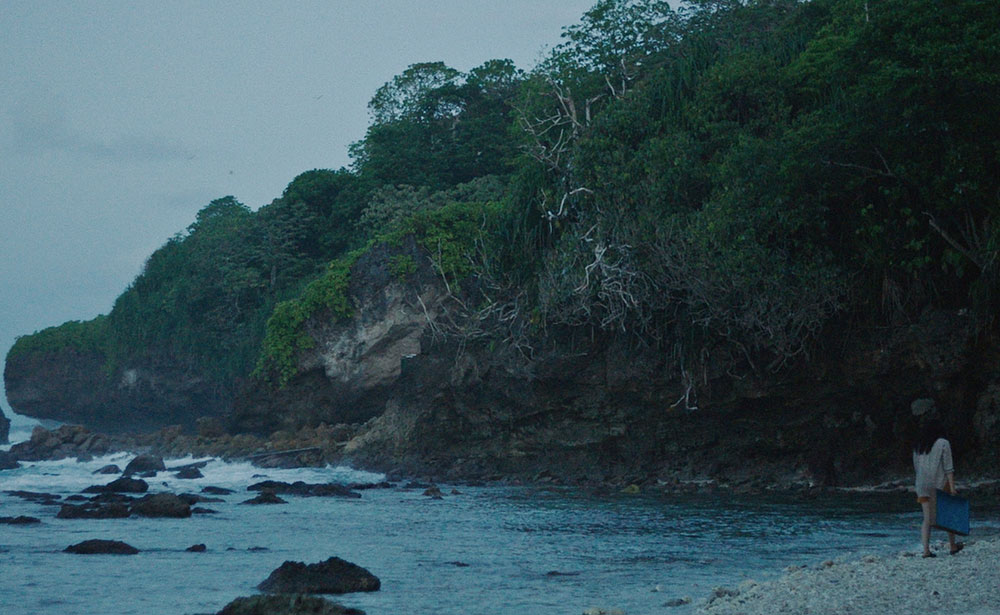There’s a moment in which everything comes into focus in “The Island of Hungry Ghosts,” when Poh Lin Lee can be seen stopping her car on a dirt road on Christmas Island off the Australian coast. Annually, the community collectively pumps its brakes for migration of red crabs that skitter across the land, with locals going so far as to break branches to make the journey easier as even the smallest puddle could be an impediment, and in a rare moment alone, far from the patients she sees at her day job as a therapist or the family she tends to at home at night, Poh Lin can be seen sweeping the road for crabs so as not to run over them, an extension of the same instinct to help the most vulnerable that she applies to any other part of her daily routine.
In Gabrielle Brady’s arresting feature debut, you become well aware of this before you even learn Poh Lin’s name or exactly what it is she does, replicating a sense of disorientation if not despair felt by the people she treats, working for Australia’s National Immigrant Detention Center. A grief counselor who spends her time with recent refugees to the country talking through their traumatic experiences, often risking their lives to escape untenable situations elsewhere, Poh Lin engages the fragile people who walk through her door in an unorthodox exercise, bringing out a sandbox for them to create whatever scene comes across their mind as they reflect on what’s happened as they lie in wait to hear whether they’ll be shipped back from where they came.

While some may be frustrated by this meticulous build where connections aren’t made immediately and what context there is is laid in sparingly (usually creeping in through Poh Lin’s car radio or in conversations with her two young daughters), Brady keeps “Island of Hungry Ghosts” engaging enough with transfixing imagery and elusive editing where individual moments inspire curiosity until the long game she’s playing becomes clear, and “Island of Hungry Ghosts” becomes a one-of-a-kind experience for it, as the feeling of being lost moves from the head to the heart.
With Poh Lin moving towards the center of the story, the filmmaker pulls off a truly unique form of immersion when the dynamics of how the immigrants she counsels are made clear as the structure of the film itself becomes more evident, but the question of why resounds with increasing intensity, particularly when the therapist starts expressing doubt in what she’s doing when her patients only seem to be getting worse. It’s notable you rarely see the desperate and aggrieved people Poh Lin counsels in full visually, though you hear their voices clearly as hyper close-ups can obscure their faces, clearing the path to really listen to what they say, and all throughout “Island of Hungry Ghosts,” Brady inspires an audience to lean in, with the accumulation of small details gradually adding up to something extraordinarily powerful. As distant as the story may initially seem to Westerners, emanating all the way from a small community surrounded by the Indian Ocean, Brady makes sure it hits home, no matter where you live.
“Island of Hungry Ghosts” does not yet have U.S. distribution.




